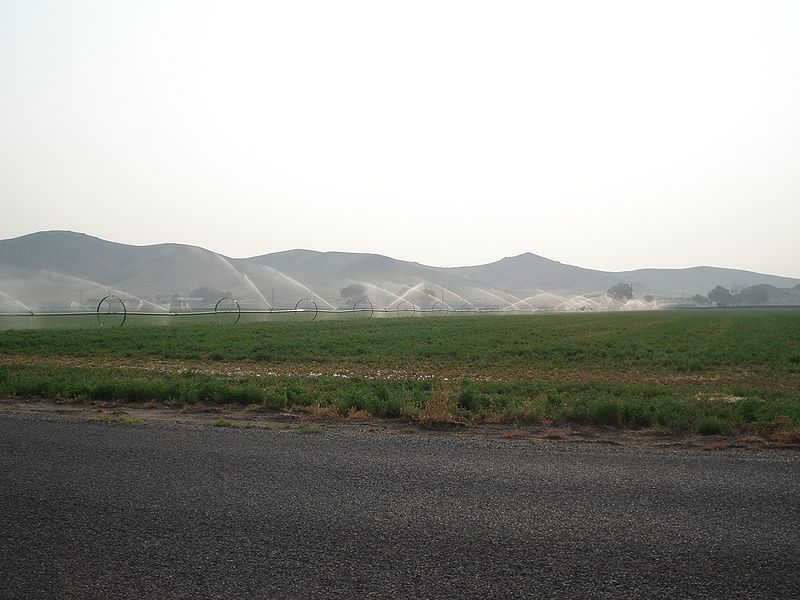Yesterday, we put up a post discussing allegations from the Organic Consumers Association (OCA) that Stonyfield Farm, Organic Valley, and Whole Foods broke away from the organic community to support "co-existence" with Monsanto's genetically modified alfalfa, a toxic pesticide-resistant crop used as hay for cattle. Now Stonyfield and Organic Valley have responded to explain their point of view on what really happened in the battle against GE alfalfa.
In a nutshell: These companies, as well as a number of others in the organic and biotech communities, have been involved in talks with the USDA in an attempt to reach a consensus on GE alfalfa. Stonyfield CEO Gary Hirshberg points out that contrary to the OCA's allegation that Stonyfield, Organic Valley, and Whole Foods split from the organic community, "the full spectrum of organic interests were in that room" when USDA Secretary Tom Vilsack convened the Alfalfa Production Co-Existence Forum this past December. Attendees included representatives from Beyond Pesticides, the National Family Farm Coalition, the Cornucopia Institute, and the Organic Seed Alliance, among others. The OCA was not invited to the forum.
"They had closed door meetings in Washington, D.C., where we were not invited. We were told, 'You are not a stakeholder.' We're the largest organic consumer organization in the U.S," says Ronnie Cummins, director of the OCA. "If we're not a stakeholder, who is?"
Both Stonyfield and Organic Valley contend, however, that they have been extremely active in the fight against GE alfalfa, and had little choice but to push for the USDA's "conditional deregulation coexistence" option for the crop, or deregulation along with certain safeguards for the organic community.
"As reasonable people, we just have to deal with the game plan that was laid out," says George Siemon, CEO of Organic Valley. As it became increasingly obvious that a ban on GE alfalfa was off the table, Stonyfield and Organic Valley opted to fight for whatever safeguards they could get--and they never negotiated with Monsanto.
This wasn't enough, argues Cummins. "We would have said, hell no, you're not going to determine that we can either have unregulated release [of GE alfalfa] or some kind of token regulated release. It's not the role of organic industry leaders to accept a threat from the USDA like that."
The arguments on strategy became moot points when the USDA decided to completely deregulate GE alfalfa last week, but the organic organizations involved in the Alfalfa Production Co-Existence Forum did score one small victory. Vilsack authorized the establishment of a seed germination laboratory in Washington state for non-GE seeds that could, according to Hirshberg, "prove to be extremely important when the real truth comes out about the dangers of GE crops."
Immediately after Vilsack issued his decision to deregulate GE alfalfa, Stonyfield "went right to work on half a dozen necessary steps," Hirshberg says, including putting the money together for an appeal, and putting the science together into a language that consumers can understand.
And as for the OCA's attacks? Hirshberg and Siemon don't know why the organization has accused them of giving in to Monsanto. "The important thing is that all of this hubbub has been based on one guy's contention--one guy [Ronnie Cummins] who wasn't even there," says Hirshberg. "The fact that his made-up story became news is to me really disappointing."
Rather than continue the dispute, Cummins says he just wants to move on. "We're calling for the organic community to close ranks, move forward, and speak in one voice about these matters."
Follow Fast Company on Twitter. Ariel Schwartz can be reached by email.

0 comments:
Post a Comment